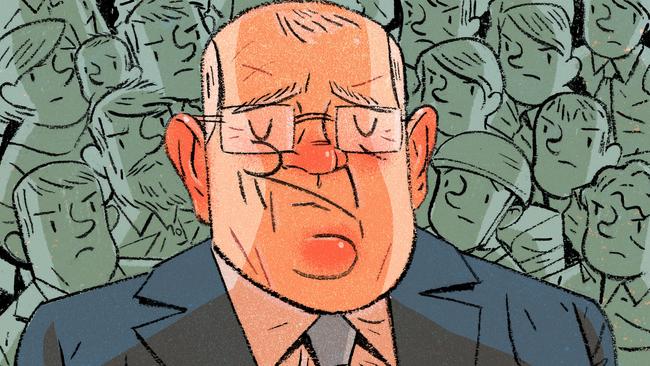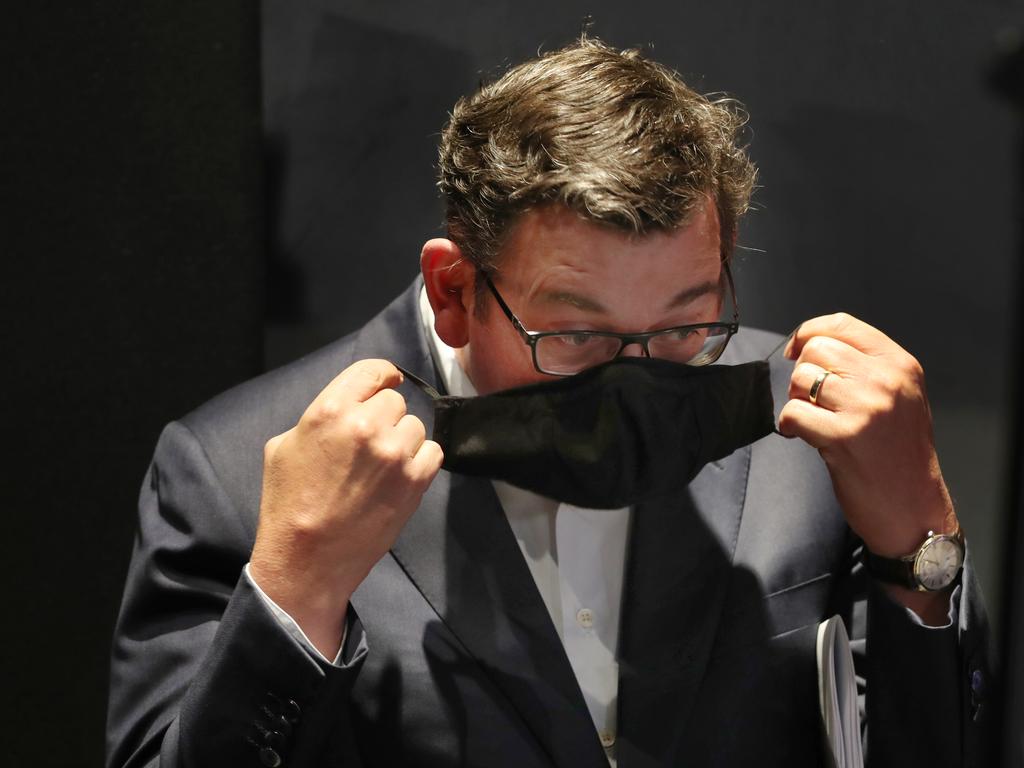Forgotten, or casualties of the culture war?
Too many Australians have joined the ranks of the forgotten people during this pandemic, isolated from government support.

Despite record handouts across some sections of Australian society, the young and women disproportionately have missed out. Within these broader groupings more specifically it is casual workers and people employed by (or studying in) universities as well as the arts and entertainment industry who have been especially disadvantaged by government decision-making.
Australians stranded abroad also have been largely forgotten, notwithstanding valiant efforts by the opposition to draw attention to their plight.
On May 22, 1942, Robert Menzies delivered his famous “Forgotten People” speech, which he used as the bedrock for creating the Liberal Party two years later. Menzies claimed too many middle-class Australians had been forgotten by their government. His intention was to recalibrate the right of politics away from speaking up on behalf of big business, as the United Australia Party (which he formerly led) had long done.
Scott Morrison’s government has its own forgotten people to worry about, but it is hard to work out if the disadvantage these citizens face bothers him, personally or politically. There is a sense some of the forgetfulness is intentional, as Liberals move to settle ideological and cultural scores with sections of Australian society they have long regarded as hostile, such as universities (hotbeds of left-wing thinking apparently) and the arts sector (too quick to mock the right as social dinosaurs). The pandemic has given this government the capacity to use the power of the state to wage such a culture war with laser-like precision.
The Morrison government made the decision to exclude most casual workers from JobKeeper, putting them in a vulnerable position during the biggest crisis since the Great Depression. In doing so, the young and women suffered disproportionately and continue to. There is nothing polemical in saying that, it’s what the data tells us.
Despite this early assault on the welfare of these forgotten Australians, subsequent support packages continued to be tailored towards professions that employed more men than women: the gas announcement; the HomeBuilder scheme; broader infrastructure spending, too. The few exceptions — the childcare package — prove the rule.
The economic effects of the pandemic have been the inverse of the health effects: the elderly are especially vulnerable to the coronavirus itself, whereas young people are the losers when it comes to limited work or study opportunities.
This is one of the reasons leaving universities to wither on the vine courtesy of their collective ineligibility for JobKeeper support has been so brazenly forgetful. The rearguard action we’ve seen this week to try to save research jobs is too little, too late.
Thousands of higher education jobs have already gone. Throw in the “reforms” that will push the cost of study even higher and it’s easy to see how poorly the young have been treated during the pandemic.
Australians are left to wonder just how deliberate the government’s forgetfulness is. Is it possible that the Prime Minister isn’t as pragmatic as most of us assume, instead prepared to risk the political wrath of these forgotten communities within Australian society in the name of a cultural revolution?
Certainly his treatment of the university and arts and entertainment sectors has been particularly brazen, in the case of the latter even making an announcement in June that money was coming yet months later not one cent has flowed through. The treatment has been so bad that the owner of a Gold Coast studio where Morrison made an arts support package announcement ended up writing to the Prime Minister complaining that he’d been used and hadn’t received the promised support.
Come mid-September it was left to the Victorian government to announce $13m in support for local entertainment venues to help them recover from the effects of the second wave. That’s a fiscal drop in the ocean compared with the sums of taxpayers’ money flying around federally.
Perhaps the most concerning aspect of the Coalition’s forgetfulness is the lack of clear policy settings to help those Australians permanently disrupted by the pandemic. A lack of forward planning to be sure. Our lives have been changed forever, and with that social and economic norms too. Even when a vaccine rolls out things won’t go back to the way they were, meaning whole sections of society will be worse off.
While Australians have slowly begun returning to their offices, most are working more flexibly than they did before: more time working from home, less commuting, fewer people crammed into elevators. Open-plan offices will likely become the exception in a COVID-safe world. This process of de-urbanisation may work for the few able to rejig our work practices, but what about the millions of Australians who can’t do that; indeed, who rely on the commuting workforce? When the average CBD worker spends only three out of five days in the office they spend only 60 per cent of what they once did on everything from transport to coffees, lunches or shopping in the city. The workers in these CBD retail sectors will quickly find themselves out of work. The businesses employing them may become unviable. Tinkering with insolvency provisions, as the Treasurer outlined this week in a speech in Canberra, won’t do much to help with that reality.
Then there are the forgotten workers in manual jobs who will lose out because of the uptick in automation embraced during the pandemic. More electronic check-outs replacing retail and wholesale workers, more robots in factories picking products off shelves. These developments in automation have been around for a while now, but they have improved and proliferated during the pandemic and there is no turning back. What about those displaced workers? Again, retraining and upskilling needs to be part of any solution, but our institutes of higher learning — where that can happen — have been marginalised and forgotten.
The question now: Is it deliberate forgetfulness by the Prime Minister down in the Coalition government? Or just poor policymaking leaving so many Australians behind?
Peter van Onselen is political editor at the Ten Network and a professor of politics and public policy at the University of Western Australia and Griffith University.







Too many Australians have joined the ranks of the forgotten people during this pandemic, isolated from government support.